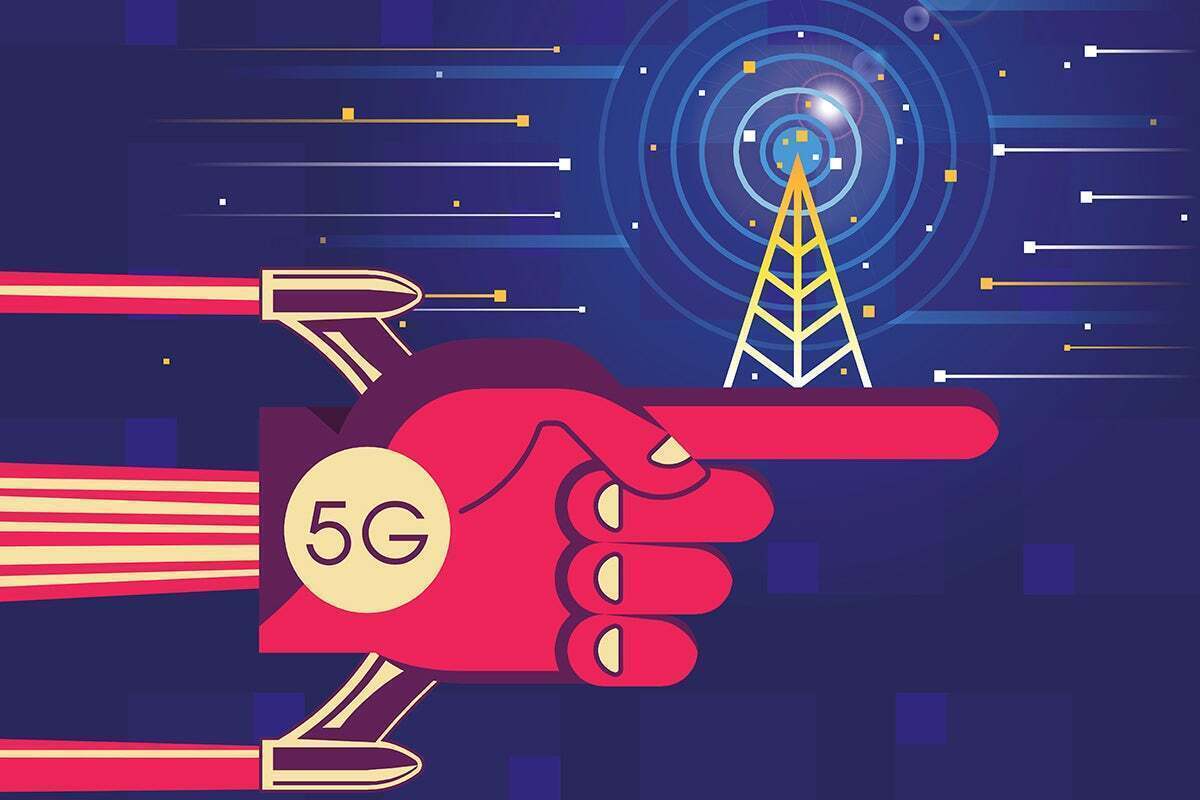- Forget AirTag: This Bluetooth tracker is my top pick for both iPhone and Android users
- This midrange robot vacuum cleans as well as some flagship models - and it's 50% off
- You may qualify for Apple's $95 million Siri settlement - how to file a claim today
- This 3-in-1 robot vacuum kept my floors clean all season, and it's priced to compete
- I changed 6 settings on my Roku TV to give it an instant performance boost
5G uploads aren’t where enterprises need them yet

Wireless operators around the world have been heavily focused on providing the best possible consumer 5G download speeds, but a new survey from the research division of French managed services provider SmartCIC says that upload connections — which enterprises need to enable important applications — are lagging behind.
In fact, according to the survey, 4G/LTE networks, on average, have 1ms of latency, compared to 8ms for 5G networks. The researchers said that there’s a possibility that a large proportion of tests being run on low-band 5G networks skewed the results somewhat, but also noted that even tests on very high frequency mmWave (or millimeter wave) networks showed up to 10ms of latency on 5G networks.
The average global download speed for 5G networks was 898Mbps, compared to 671Mbps for 4G/LTE and 99Mbps for 3G networks. The difference in upload speed between 5G and 4G/LTE was much smaller, however, and the researchers emphasize that this is a potential issue for the business use of public 5G networks.
“5G performance is still heavily focused on consumer download speeds while enterprises increasingly need a more balanced approach connectivity,” the report said. “Upload speeds remain critical for enterprise data transfer.”
The disparity between 4G and 5G upload and download speeds is instructive, per the SmartCIC research. Going by the average figures, 4G uploads provided 36% as much upload speed as download speed, but that figure was just 13% for 5G networks. That disparity is likely to shrink substantially as more carriers implement mmWave technology, which provides a lot of additional bandwidth for both down and uploads, but SmarCIC’s statistics underline the emphasis placed on consumer download speeds in early 5G deployments.
The study also ranked the top municipalities by average download and upload speeds. For 5G networks, the fastest downloads were to be had in Cannes, Singapore, Munich, Nashville and Oslo, while Lexington, Miami, Nashville, Melbourne and Rome had the fastest 4G downloads. For 5G uploads, the fastest cities were Amsterdam, Barcelona, Toronto, Belgrade and Los Angeles, with Melbourne, Munich, Belgrade, Amsterdam and New York topping the rankings for 4G uploads.
The survey was based on speed test results from 2,536 field engineers in 51 countries, and readings were taken between late March and early May of this year.
Copyright © 2022 IDG Communications, Inc.

